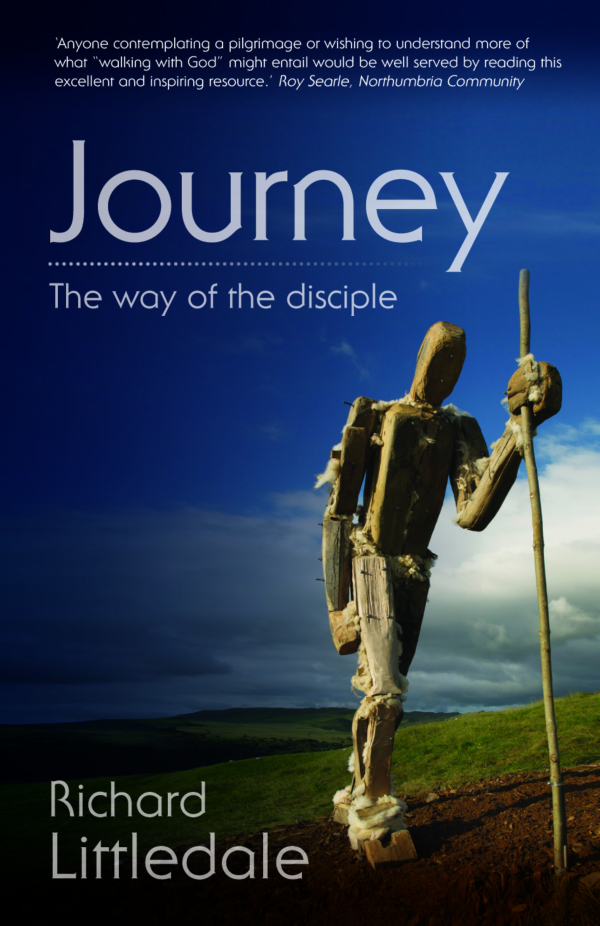Walking with God
What does the journey do to us, as spiritual beings? And what if we saw our continuing and ordinary journey as an extraordinary pilgrimage? Baptist minister Richard Littledale introduces his latest book

Back in the days when I used to read the weekend newspaper travel supplement, there is a phrase I dreaded seeing in there: ‘hidden gem’. If it happened to be a place which I loved, then I would feel the author was entirely to blame for giving ‘my’ secret place away. ‘My’ personal discovery was now public property, I felt, and would never be the same again.
I sometimes wonder whether people from other church traditions who have been taking pilgrimages for years must feel the same about them now. In 2010, Martin Sheen starred in a film about Europe’s most famous pilgrimage, (The Way). In 2011, an atheist journalist wrote all about British pilgrimages in his book The Extra Mile (Peter Stanford). Last summer the BBC sent a bunch of ‘celebrities’ on the Camino de Santiago for a TV programme and in 2017 a Baptist minister jumped on the bandwagon too!
In my defence, I had actually caught the dust trail of that particular bandwagon back in 2008. Standing in a small harbour in Northern Brittany, I had noticed a path snaking away from the shore with a battered and faded information board beside it. The sign revealed that this was the start of the ‘Chemin des templiers’. Centuries ago, people would arrive by rowing boat from Weymouth, and disembark here to begin a journey all the way to Santiago de Compostela on foot. What would make people who had scarcely left their villages, let alone their country, do such a thing, I wondered?
From that point began a trail of research which led via the London Olympics in 2012, a bespoke discipleship course and a sabbatical into an invitation to write my book Journey: the way of the disciple, for Authentic Media. The book would later be graced by a sculpture made from railway sleepers on the front cover, and illustrations by artists of other faiths and none inside. Like fellow pilgrims on the trail – these people had joined me as the adventure unfolded.
My key concern in the book was to unpack those things which we learn about God on the move which cannot be learnt whilst stationary. The theme of journey in scripture goes all the way back to Adam and Eve leaving the garden, via Noah’s journey, the exodus, the exile, the return, the scattering of the early church and the journeys of Paul to the great gathering in on the last day. What does the journey do to us, as spiritual beings?
Taking this theme of journey, the book examines those aspects of Christian discipleship which are made physical in the act of pilgrimage which are nonetheless with us from the day we embark on our journey of faith. Pilgrims have to recognise the pain of leaving things behind and must tune in for the siren call of their final destination. Pilgrims must discard things from their luggage lest it becomes so heavy as to weigh them down, and must learn to rely on their companions. They must avoid the temptation to stray from the path, and must trust in the equipment they have been given for the journey.
This, however, is the point at which the book diverges from other books on pilgrimage. Much as many readers might like to up sticks and leave for Spain, most of us will not be in a position to do so. What if we could walk the path to the supermarket or the station whilst learning those same lessons though? What if we saw our continuing and ordinary journey as an extraordinary pilgrimage? It is for this exact purpose and this kind of pilgrim that I wrote the book:
Like the long distance traveller, they would reflect from time to time on the home and habits which they had left behind. Not only that, but the constant call of their final destination would prevent the past from dragging them back where they did not want to go. When the journey seems slow, or the delays interminable, when home is obscured by distance and journey’s end is too far away to even imagine, they would whisper to themselves these four words ‘I am a pilgrim’ and set their face forwards once again.
My own journey since writing the book has been an exceptionally bumpy one – and I have had to keep a firm eye both on road and destination. This being so, I have not really kept an eye on the book’s progress. To hear yesterday from a cancer patient that it had been her ‘companion on her journey’ at her bedside in the hospital is probably all the review I need though.
The Revd Richard Littledale is the minister of Newbury Baptist Church.
Journey: The Way of the Disciple was published by Authentic. For more on Richard's publications and writing, visit his Amazon page and his blog richardlittledale.me.uk
Baptist Times, 02/07/2018